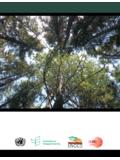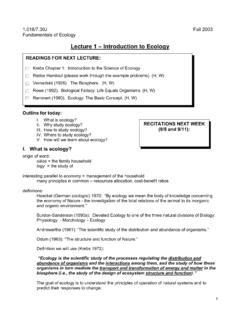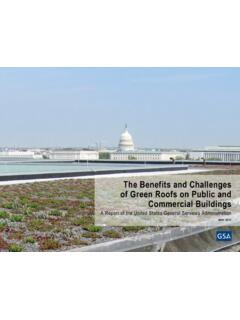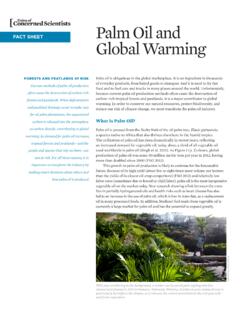Transcription of Contributions of Islamic scholars to the scientific enterprise
1 International Education Journal, 2006, 7(4), 391-399. ISSN 1443-1475 2006 Shannon Research Press. 391 Contributions of Islamic scholars to the scientific enterprise Yasmeen Mahnaz Faruqi Flinders University, School of Education This paper presents a discussion regarding the role that Muslim scholars played in the development of scientific thinking in the Middle Ages. It argues that the Muslims were not just the preservers of the ancient and Greek knowledge, but that they contributed original works to the different fields of science.
2 They were inspired by the Islamic view of nature that is, mankind had a duty to study nature in order to discover God and to use nature for the benefit of mankind . This knowledge was transferred to Western Europe and subsequently played an important role in revitalising a climate of learning and exploration in Europe, leading to the Renaissance in the sixteenth and seventeenth centuries. Muslim scholars , scientific thinking, Islamic view of nature, knowledge transfer, Western science INTRODUCTION Over the last 50 years there has been renewed interest in Islamic countries in examining the relationship between Islam and science in the spectrum of its history.
3 After gaining independence most of the Islamic countries have been struggling to come to terms with their religious beliefs and the Western concepts of science and education. The education systems adopted by the most of the Islamic countries have been based on so-called secular Western education . Consequently a cultural dichotomy is observed in their societies between a traditional Islamic education on the one hand restricted to religious groups, and a secular Western education in main stream schools, colleges and universities.
4 Education is viewed as a means of acquiring scientific knowledge and technology, in order to progress economically in the modern world. However, education has unsuccessfully tried to blend Islamic thinking with this Western education system (Al-Faruqi and Nasseef, 1981). The period between the seventh to the fifteenth centuries is considered as the Golden Age of Islamic Civilisation . During this period there was great emphasis on the pursuit of knowledge.
5 Consequently there were individuals who lived scholarly and pious lives, such as Ibn Sina, Al-Khwarizmi, and Al-Biruni, who in addition to excellence in the study of religious texts also excelled in mathematics, geography, astronomy, physics, chemistry, and medicine. At this time Islam was not just a set of religious beliefs, but a set of ideas, ethics and ideals encompassing all aspects of human life. This resulted in the establishment of an Islamic civilisation.
6 Thus the motivating force of this civilisation was its Islamic faith (used here both in the spiritual and temporal sense) and its language was Arabic (Khettani, 1976). While the progress of scientific knowledge in Europe languished during the Dark Ages, science flourished in the Golden Age of Islam. The renaissance that subsequently occurred in Europe might not have taken place without the contribution of Muslim science in the preceding period.
7 This was acknowledged by Sarton (1927, p. 17) who wrote: 392 Contributions of Islamic scholars to the scientific enterprise From the second half of the eighth to the end of the eleventh century, Arabic was the scientific , the progressive language of mankind. It is suffice here to evoke a few glorious names without contemporary equivalents in the West: Jabir Ibn Haiyan, al-Kindi, al-Khwarizmi, al-Farghani, al-Razi, Thabit ibn Qurra, al-Battani, Hunain ibn Ishaq, al-Farabi, Ibrahim ibn Sinan, al-Masudi, al-Tarabi, Abu ibn Wafa, Ali ibn Abbas, Abu-l-Qasim, Ibn al-Jazzar, al-Biruni, Ibn Sina, Ibn Yunus, al-Karkhi, Ibn al-Haitham, Ali ibn Isa, al-Ghazzali, al-Zarqali, Omar Khayyam!
8 Many Muslims scholars in the Golden Age of Islam studied nature in the context of the Quran. The Quran depicted the relationship between nature and man, and this inspired the Muslim scholars to study natural phenomena, in order to understand God. Islam s contribution to the scientific enterprise was complex and rich and it spanned over three continents and nearly a millennium of time. Islamic VIEW OF NATURE The Islamic view of nature during the Golden Age was for mankind to study nature in order to discover God and to use nature for the benefit of mankind.
9 Nature could be used to provide food for mankind and its bounty was to be equally distributed among all peoples. All activities that caused harm to mankind and in turn destroyed nature were forbidden. Destruction of the natural balance was discouraged, for example, unnecessary killing of animals or removal of vegetation might in turn lead to starvation due to lack of food. This view was an extension of the idea that man had been placed on earth as God s representative.
10 The Islamic view of nature during the Golden Age had its roots in the Quran, the very word of God and the basis of Islam. Muslim scholars at that time were inspired to study nature in the context of the Quran. The following passages from the Quran illustrate the relationship between nature and man and how this relationship inspired Muslim scholars to study natural phenomenon, in order to understand God. The following verses also show the way the Quran presents the whole universe: We created not the heavens, the earth, and all between them, merely in (idle) sport.
















